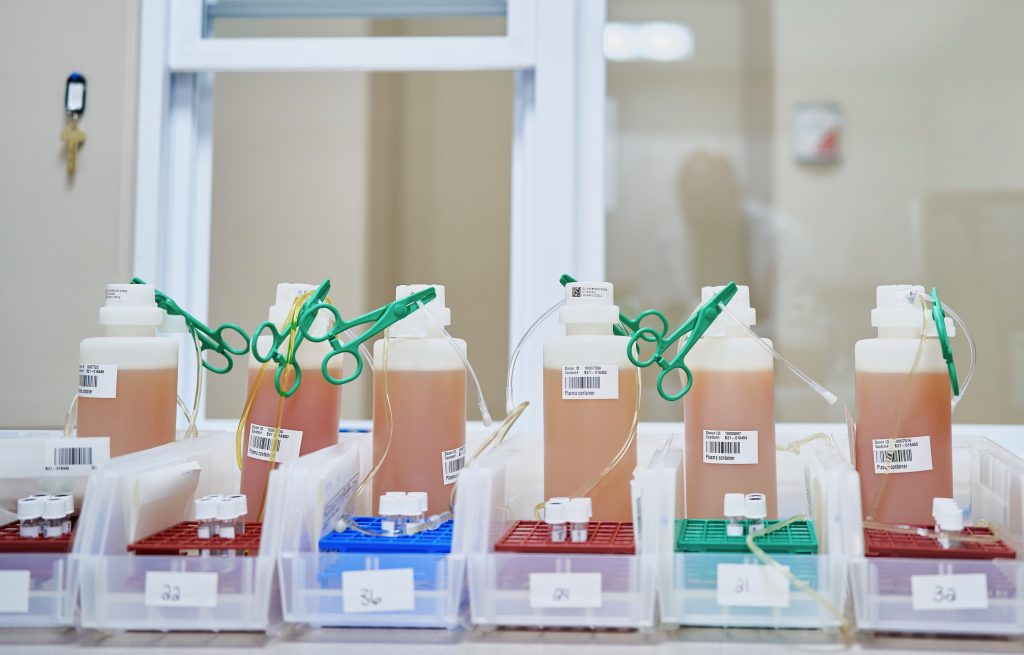What Is Myositis? How Plasma Is Used to Treat This Condition
novembre 29, 2021

For many decades, plasma, the main component of blood, has been manufactured into life-saving therapies and used to treat a host of rare and chronic conditions. In fact, donated plasma is capable of treating over 80 different autoimmune disorders, immunodeficiencies, and blood disorders. One of the conditions that plasma is capable of treating is myositis.
In this blog, we will be going over what myositis is and how plasma protein therapies can help individuals manage this condition.
What Is Myositis?
Myositis is the term used to describe general inflammation or swelling of the muscles. It is a rare disease that can be difficult to diagnose. The five types of myositis are:
- dermatomyositis
- juvenile myositis
- inclusion-body myositis
- polymyositis
- toxic myositis
With the exception of inclusion-body myositis, women are more likely to be affected by myositis than men.
What Causes Myositis?
The exact cause of myositis is unknown, but it is believed to be an autoimmune condition that makes the body attack healthy muscle tissue. Researchers think that myositis may also be caused by:
- Inflammatory conditions, such as lupus, rheumatoid arthritis, and scleroderma
- Viral infections, like the common cold and flu viruses
- Injury from vigorous exercise
- Drug toxicity
What Are the Symptoms of Myositis?
The main symptom of myositis is chronic muscle inflammation that may result in weakness, fatigue after standing or walking for a long time, and/or frequent falling. Other symptoms of this condition may include:
- Difficulty swallowing or breathing
- Swelling of the feet and legs
- Muscular and joint pain
- A rash on the eyelids, elbows, knees and/or knuckles
- Skin thickening on the hands
How is Myositis Diagnosed?
Myositis can be difficult to diagnose because it is so rare and the main symptoms of it – fatigue and weakness – are also associated with other diseases. If your doctor does suspect you might have myositis, he or she might suggest a blood test, an MRI, a muscle biopsy, and/or an electromyography test.
What Is the Treatment for Myositis?
There is no cure for myositis, but treatment can improve your muscle strength and function. Depending on the cause of myositis, the treatment for the condition will vary. In general, myositis that is caused by an inflammatory condition is treated with drugs that suppress the immune system, myositis that is caused by a viral infection doesn’t have a specific treatment, and myositis that is brought on by a drug is treated by stopping that medication.
Intravenous immune globulin (IVIG), which is a plasma-derived medicine, can also be used to treat myositis and other diseases of the immune system. IVIG helps regulate an overactive immune system by signalling for it to slow down inflammatory processes.
By donating plasma, you can help patients with myositis and other rare diseases receive the treatments they need. It takes thousands of plasma donations to make one batch of IVIG treatments, so if you’re able to donate, please book an appointment at a centre near you. Every donation counts!









